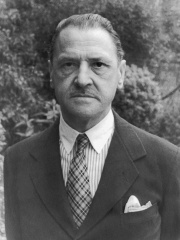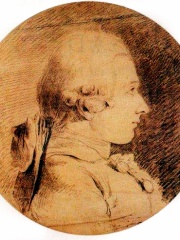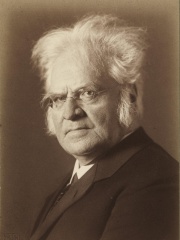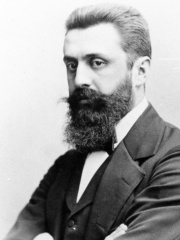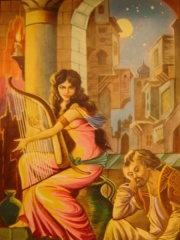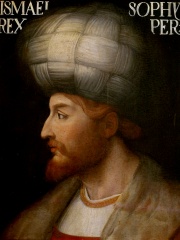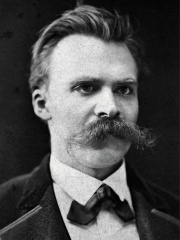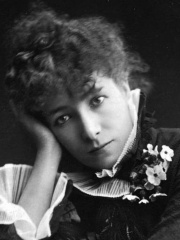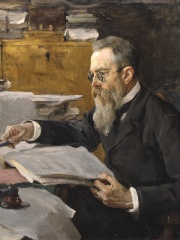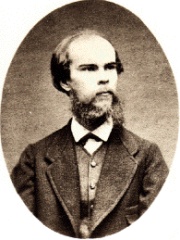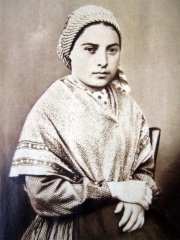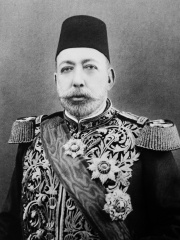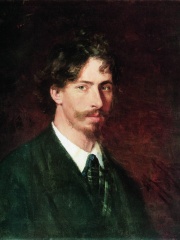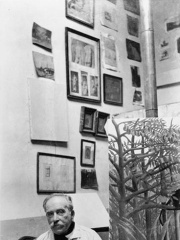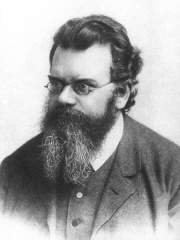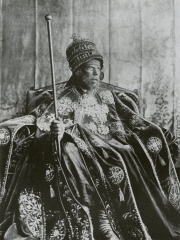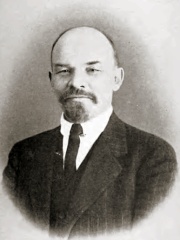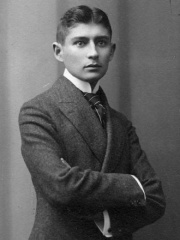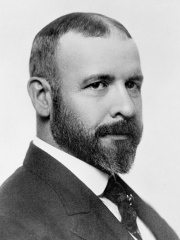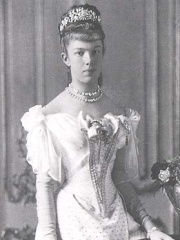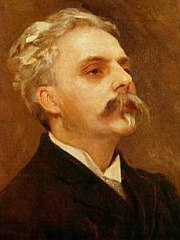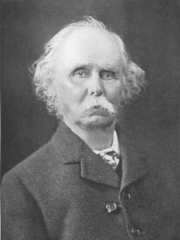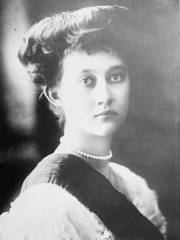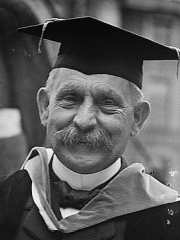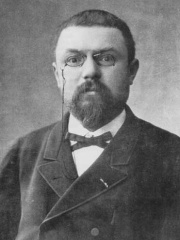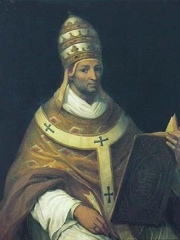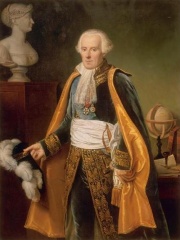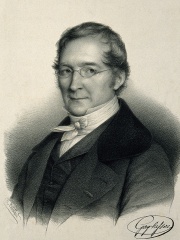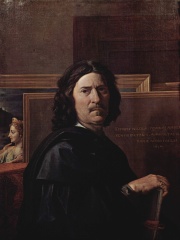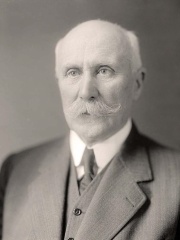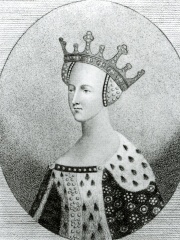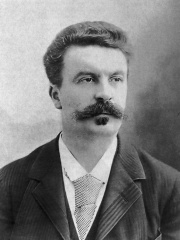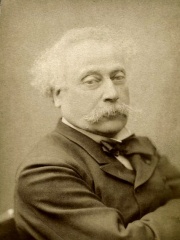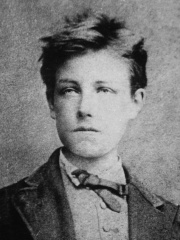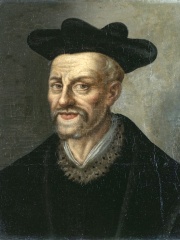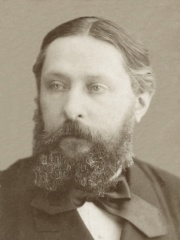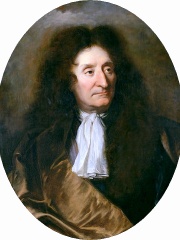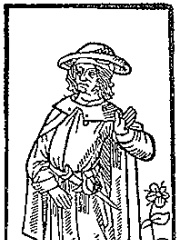WRITER
Anatole France
1844 - 1924

 Anatole France
Anatole France
Anatole France (French: [anatɔl fʁɑ̃s]; born François-Anatole Thibault [frɑ̃swa anatɔl tibo]; 16 April 1844 – 12 October 1924) was a French poet, journalist, and novelist with several best-sellers. Ironic and skeptical, he was considered in his day the ideal French man of letters. He was a member of the Académie Française, and won the 1921 Nobel Prize in Literature "in recognition of his brilliant literary achievements, characterized as they are by a nobility of style, a profound human sympathy, grace, and a true Gallic temperament". France is also widely believed to be the model for narrator Marcel's literary idol Bergotte in Marcel Proust's In Search of Lost Time. Read more on Wikipedia
His biography is available in 96 different languages on Wikipedia (up from 95 in 2024). Anatole France is the 114th most popular writer (up from 117th in 2024), the 116th most popular biography from France (up from 120th in 2019) and the 25th most popular French Writer.
Anatole France is most famous for his novel "The Red and the Black."
Memorability Metrics
Page views of Anatole France by language
Among WRITERS
Among writers, Anatole France ranks 114 out of 7,302. Before him are W. Somerset Maugham, Stephen King, Aleksandr Solzhenitsyn, Marquis de Sade, José Saramago, and Václav Havel. After him are Bjørnstjerne Bjørnson, André Gide, Theodor Herzl, Hafez, Rainer Maria Rilke, and Ismail I.
Most Popular Writers in Wikipedia
Go to all RankingsW. Somerset Maugham
1874 - 1965
HPI: 81.60
Rank: 108
Stephen King
1947 - Present
HPI: 81.49
Rank: 109
Aleksandr Solzhenitsyn
1918 - 2008
HPI: 81.48
Rank: 110
Marquis de Sade
1740 - 1814
HPI: 81.34
Rank: 111
José Saramago
1922 - 2010
HPI: 81.32
Rank: 112
Václav Havel
1936 - 2011
HPI: 81.32
Rank: 113
Anatole France
1844 - 1924
HPI: 81.25
Rank: 114
Bjørnstjerne Bjørnson
1832 - 1910
HPI: 81.19
Rank: 115
André Gide
1869 - 1951
HPI: 81.05
Rank: 116
Theodor Herzl
1860 - 1904
HPI: 81.04
Rank: 117
Hafez
1325 - 1389
HPI: 80.96
Rank: 118
Rainer Maria Rilke
1875 - 1926
HPI: 80.94
Rank: 119
Ismail I
1487 - 1524
HPI: 80.93
Rank: 120
Contemporaries
Among people born in 1844, Anatole France ranks 4. Before him are Friedrich Nietzsche, Karl Benz, and Sarah Bernhardt. After him are Nikolai Rimsky-Korsakov, Paul Verlaine, Bernadette Soubirous, Mehmed V, Ilya Repin, Henri Rousseau, Ludwig Boltzmann, and Menelik II. Among people deceased in 1924, Anatole France ranks 4. Before him are Vladimir Lenin, Franz Kafka, and Giacomo Puccini. After him are Woodrow Wilson, Louis Sullivan, Archduchess Marie Valerie of Austria, Joseph Conrad, Gabriel Fauré, Alfred Marshall, Marie-Adélaïde, Grand Duchess of Luxembourg, and Paul Henri Balluet d'Estournelles de Constant.
Others Born in 1844
Go to all RankingsFriedrich Nietzsche
PHILOSOPHER
1844 - 1900
HPI: 90.17
Rank: 1
Karl Benz
INVENTOR
1844 - 1929
HPI: 88.12
Rank: 2
Sarah Bernhardt
ACTOR
1844 - 1923
HPI: 81.34
Rank: 3
Anatole France
WRITER
1844 - 1924
HPI: 81.25
Rank: 4
Nikolai Rimsky-Korsakov
COMPOSER
1844 - 1908
HPI: 80.32
Rank: 5
Paul Verlaine
WRITER
1844 - 1896
HPI: 80.12
Rank: 6
Bernadette Soubirous
RELIGIOUS FIGURE
1844 - 1879
HPI: 79.51
Rank: 7
Mehmed V
POLITICIAN
1844 - 1918
HPI: 79.26
Rank: 8
Ilya Repin
PAINTER
1844 - 1930
HPI: 78.69
Rank: 9
Henri Rousseau
PAINTER
1844 - 1910
HPI: 78.41
Rank: 10
Ludwig Boltzmann
PHYSICIST
1844 - 1906
HPI: 77.57
Rank: 11
Menelik II
POLITICIAN
1844 - 1913
HPI: 77.49
Rank: 12
Others Deceased in 1924
Go to all RankingsVladimir Lenin
POLITICIAN
1870 - 1924
HPI: 91.51
Rank: 1
Franz Kafka
WRITER
1883 - 1924
HPI: 89.62
Rank: 2
Giacomo Puccini
COMPOSER
1858 - 1924
HPI: 85.72
Rank: 3
Anatole France
WRITER
1844 - 1924
HPI: 81.25
Rank: 4
Woodrow Wilson
POLITICIAN
1856 - 1924
HPI: 79.93
Rank: 5
Louis Sullivan
ARCHITECT
1856 - 1924
HPI: 78.87
Rank: 6
Archduchess Marie Valerie of Austria
POLITICIAN
1868 - 1924
HPI: 78.56
Rank: 7
Joseph Conrad
WRITER
1857 - 1924
HPI: 78.29
Rank: 8
Gabriel Fauré
COMPOSER
1845 - 1924
HPI: 78.20
Rank: 9
Alfred Marshall
ECONOMIST
1842 - 1924
HPI: 75.63
Rank: 10
Marie-Adélaïde, Grand Duchess of Luxembourg
POLITICIAN
1894 - 1924
HPI: 74.59
Rank: 11
Paul Henri Balluet d'Estournelles de Constant
POLITICIAN
1852 - 1924
HPI: 74.01
Rank: 12
In France
Among people born in France, Anatole France ranks 116 out of 6,770. Before him are Henri Poincaré (1854), Pope John XXII (1244), Sarah Bernhardt (1844), Marquis de Sade (1740), Pierre-Simon Laplace (1749), and Pope Innocent VI (1282). After him are François Mitterrand (1916), Joseph Louis Gay-Lussac (1778), André Gide (1869), Nicolas Poussin (1594), Philippe Pétain (1856), and Catherine of Valois (1401).
Others born in France
Go to all RankingsHenri Poincaré
MATHEMATICIAN
1854 - 1912
HPI: 81.48
Rank: 110
Pope John XXII
RELIGIOUS FIGURE
1244 - 1334
HPI: 81.45
Rank: 111
Sarah Bernhardt
ACTOR
1844 - 1923
HPI: 81.34
Rank: 112
Marquis de Sade
WRITER
1740 - 1814
HPI: 81.34
Rank: 113
Pierre-Simon Laplace
MATHEMATICIAN
1749 - 1827
HPI: 81.34
Rank: 114
Pope Innocent VI
RELIGIOUS FIGURE
1282 - 1362
HPI: 81.33
Rank: 115
Anatole France
WRITER
1844 - 1924
HPI: 81.25
Rank: 116
François Mitterrand
POLITICIAN
1916 - 1996
HPI: 81.24
Rank: 117
Joseph Louis Gay-Lussac
CHEMIST
1778 - 1850
HPI: 81.21
Rank: 118
André Gide
WRITER
1869 - 1951
HPI: 81.05
Rank: 119
Nicolas Poussin
PAINTER
1594 - 1665
HPI: 81.04
Rank: 120
Philippe Pétain
POLITICIAN
1856 - 1951
HPI: 81.00
Rank: 121
Catherine of Valois
COMPANION
1401 - 1437
HPI: 80.98
Rank: 122
Among WRITERS In France
Among writers born in France, Anatole France ranks 25. Before him are Guy de Maupassant (1850), Alexandre Dumas fils (1824), Arthur Rimbaud (1854), François Rabelais (1494), W. Somerset Maugham (1874), and Marquis de Sade (1740). After him are André Gide (1869), Sully Prudhomme (1839), Jean de La Fontaine (1621), François Villon (1431), Jean Cocteau (1889), and Paul Verlaine (1844).
Guy de Maupassant
1850 - 1893
HPI: 81.81
Rank: 19
Alexandre Dumas fils
1824 - 1895
HPI: 81.76
Rank: 20
Arthur Rimbaud
1854 - 1891
HPI: 81.74
Rank: 21
François Rabelais
1494 - 1553
HPI: 81.73
Rank: 22
W. Somerset Maugham
1874 - 1965
HPI: 81.60
Rank: 23
Marquis de Sade
1740 - 1814
HPI: 81.34
Rank: 24
Anatole France
1844 - 1924
HPI: 81.25
Rank: 25
André Gide
1869 - 1951
HPI: 81.05
Rank: 26
Sully Prudhomme
1839 - 1907
HPI: 80.51
Rank: 27
Jean de La Fontaine
1621 - 1695
HPI: 80.50
Rank: 28
François Villon
1431 - 1463
HPI: 80.47
Rank: 29
Jean Cocteau
1889 - 1963
HPI: 80.33
Rank: 30
Paul Verlaine
1844 - 1896
HPI: 80.12
Rank: 31
